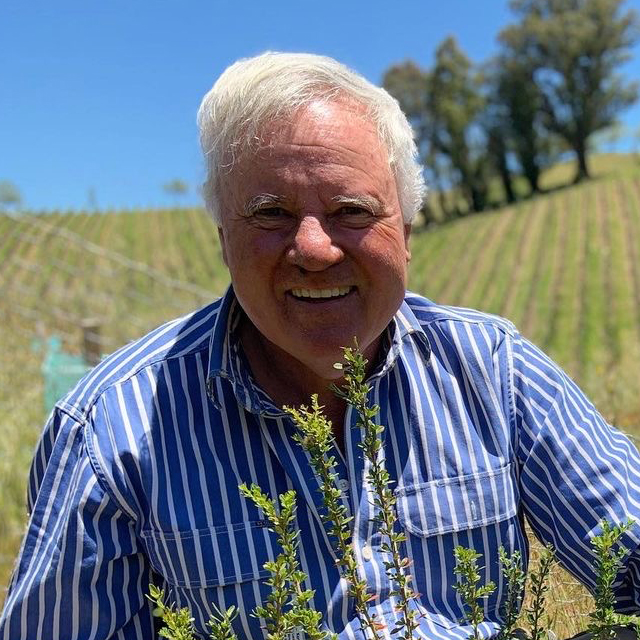1. Tell us about your experience in grape growing? My life in the wine industry began as a winemaker in 1974, first at Orlando and then Hardys. My first foray into wine grape growing was in 1976 with my first vineyard at Springton. In 1982 I bought land and planted my 12ha vineyard at Lenswood in 1982. For the past 27 years I have been a wine grape grower/maker.
2. What prompted you to want to be involved in the EcoVineyards project? I am always interested in being environmentally conscious and to this end, I use the gentlest chemical (S and Cu) as fungicides and no pesticides apart from BT for LBAM. My goal is to promote biodiversity and have a positive long term impact on the land.
3. What do you hope to achieve from your involvement in the EcoVineyards project?A better understanding of useful plants to aid in promoting a healthier local ecosystem.
4. Have you tried to increase biodiversity on your property before undertaking this project? If so, how?Our vines are largely run without irrigation so biodiversity is important. We have always promoted the natural volunteer sward in our rows and I have planted hundreds of trees (mainly Eucalypts) but also acacias, oaks and plane trees around the vineyard. I’m looking forward to how the recently planted Christmas Bushes take to our property.
In our unplanted areas of the vineyard, I have had a long and slowly successful battle with Gorse and broom.
5. Why do you think it is so important for growers to try and build natural resilience on their property? Running a vineyard as a monoculture is done at our peril. A monoculture environment is inherently more vulnerable to damage and collapse than diverse ecosystems.
6. Looking to the future, what do you see as a new ‘normal’ for grape growers on their properties? I think a lot of what I’m doing at Lenswood will become the new normal. Largely dry-grown grapes, using minimal or no pesticides, gentle fungicides and going back to hand pruning and picking to promote quality. I think we need to approach grape growing as part of the wider plant community so that we don’t hinder biodiversity.
In the future I see more and more growers adopting these practices. Not only because of quality and cost, but also because it is the right thing to do in the long term. It’s just another angle we can use to help promote our wines and growing regions within the wine market.

